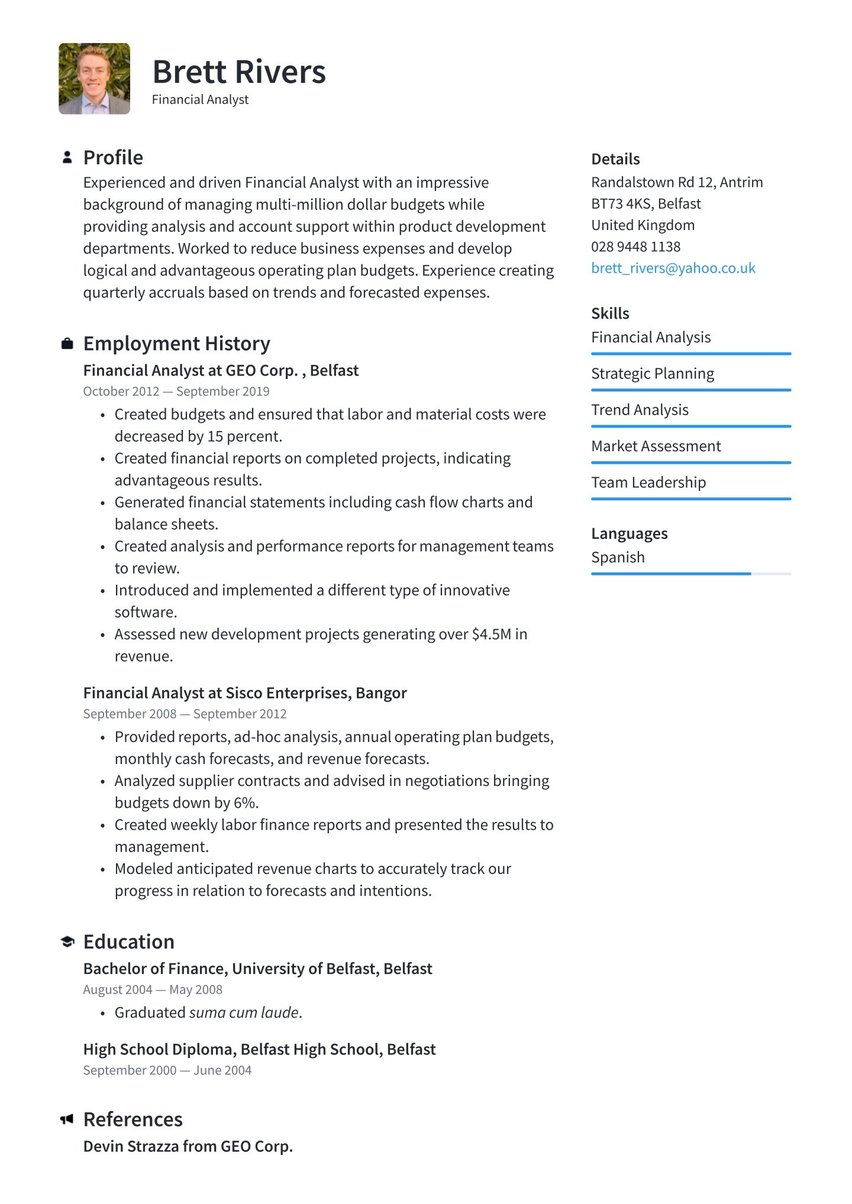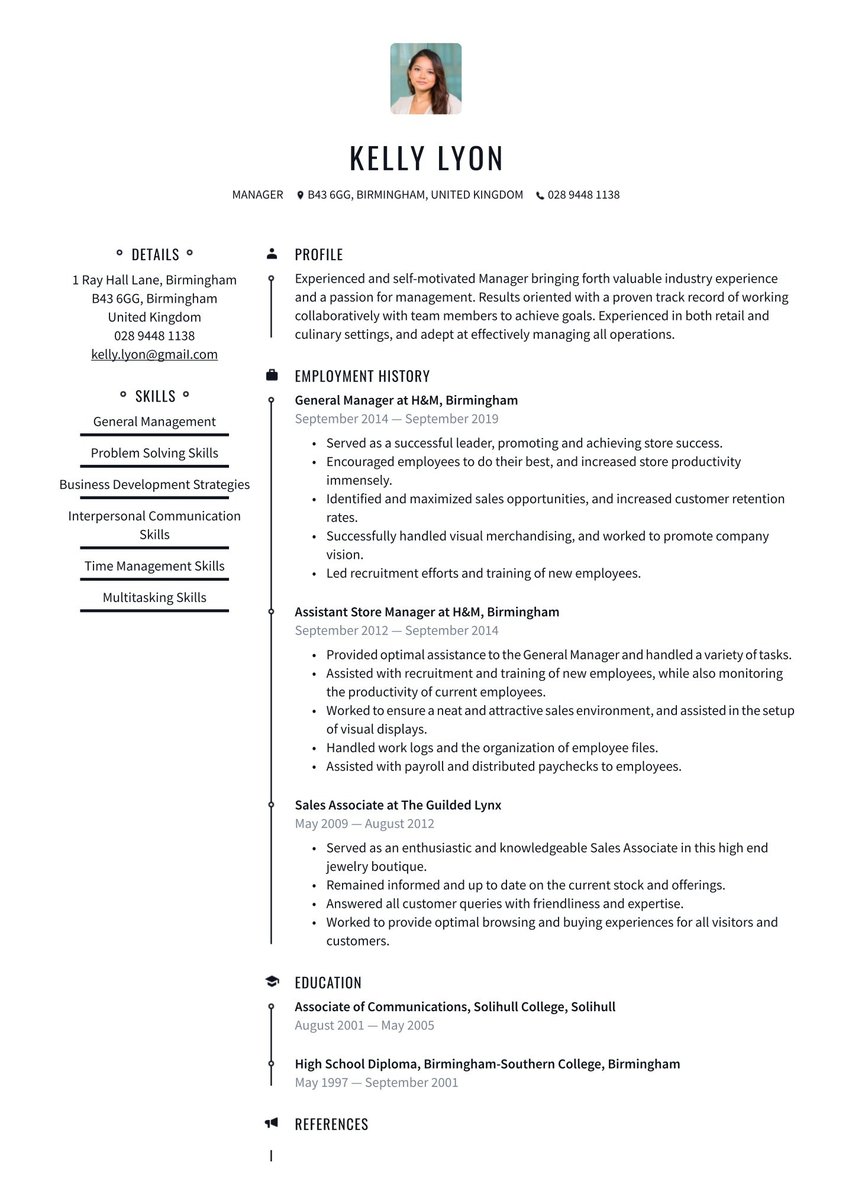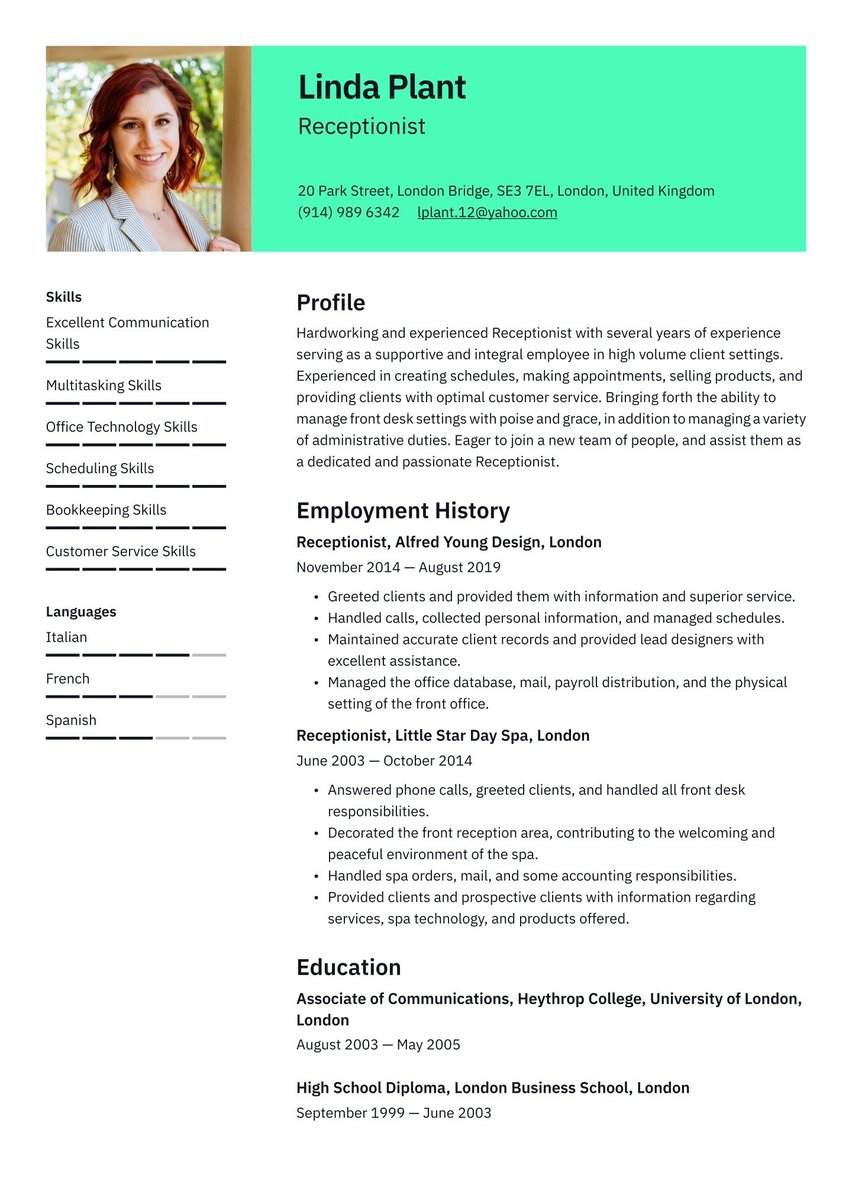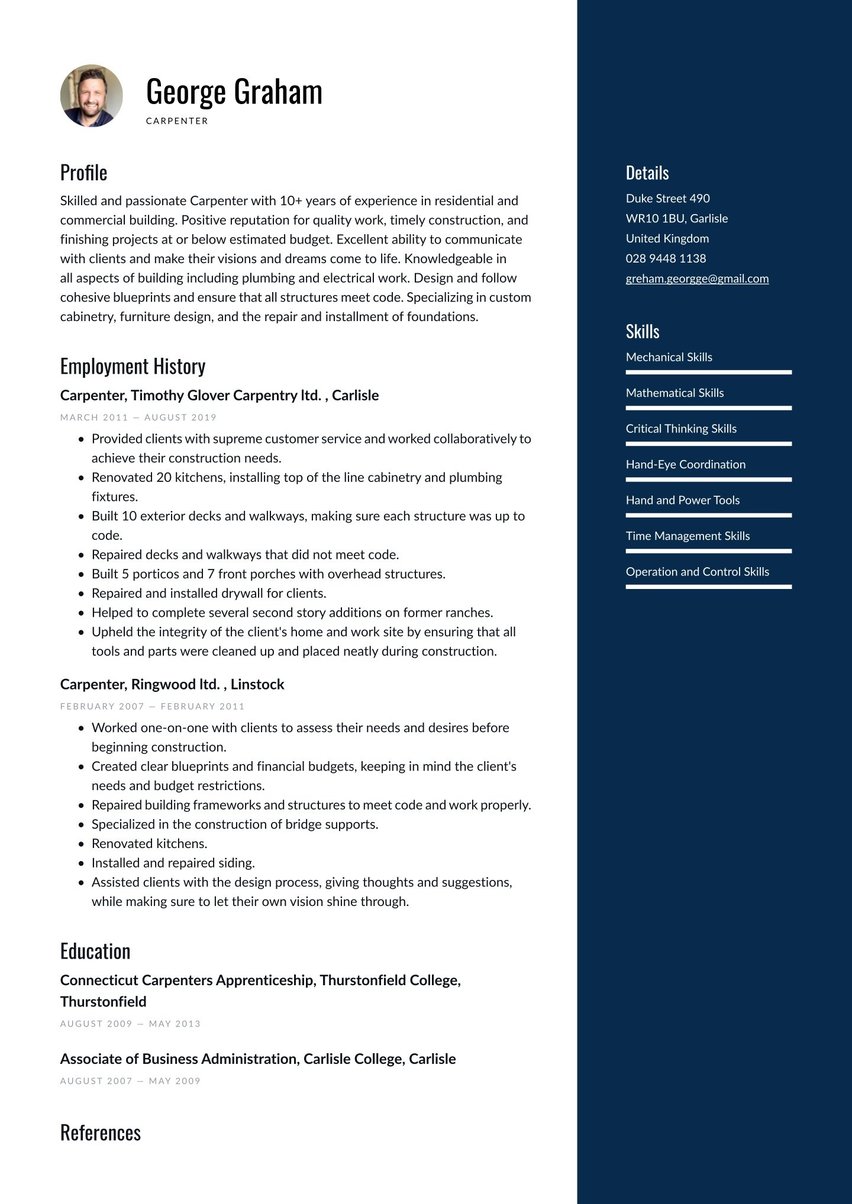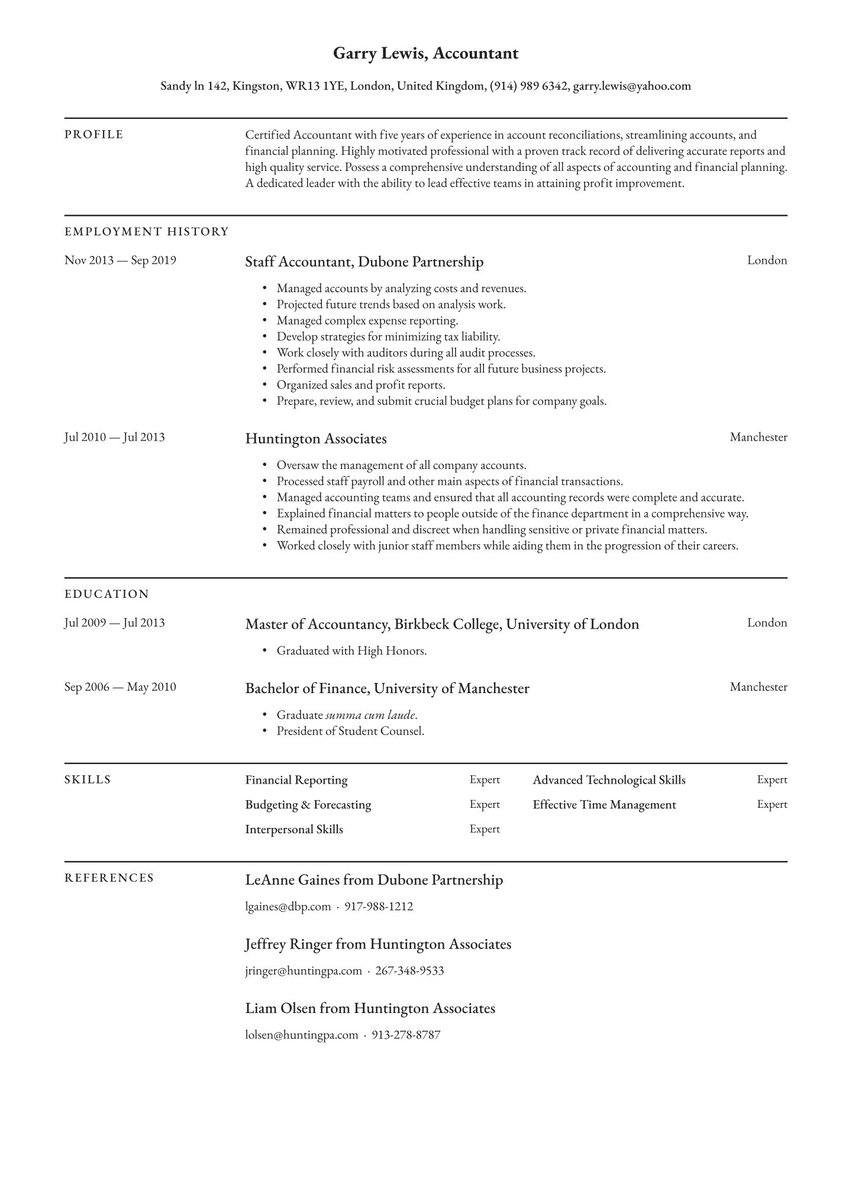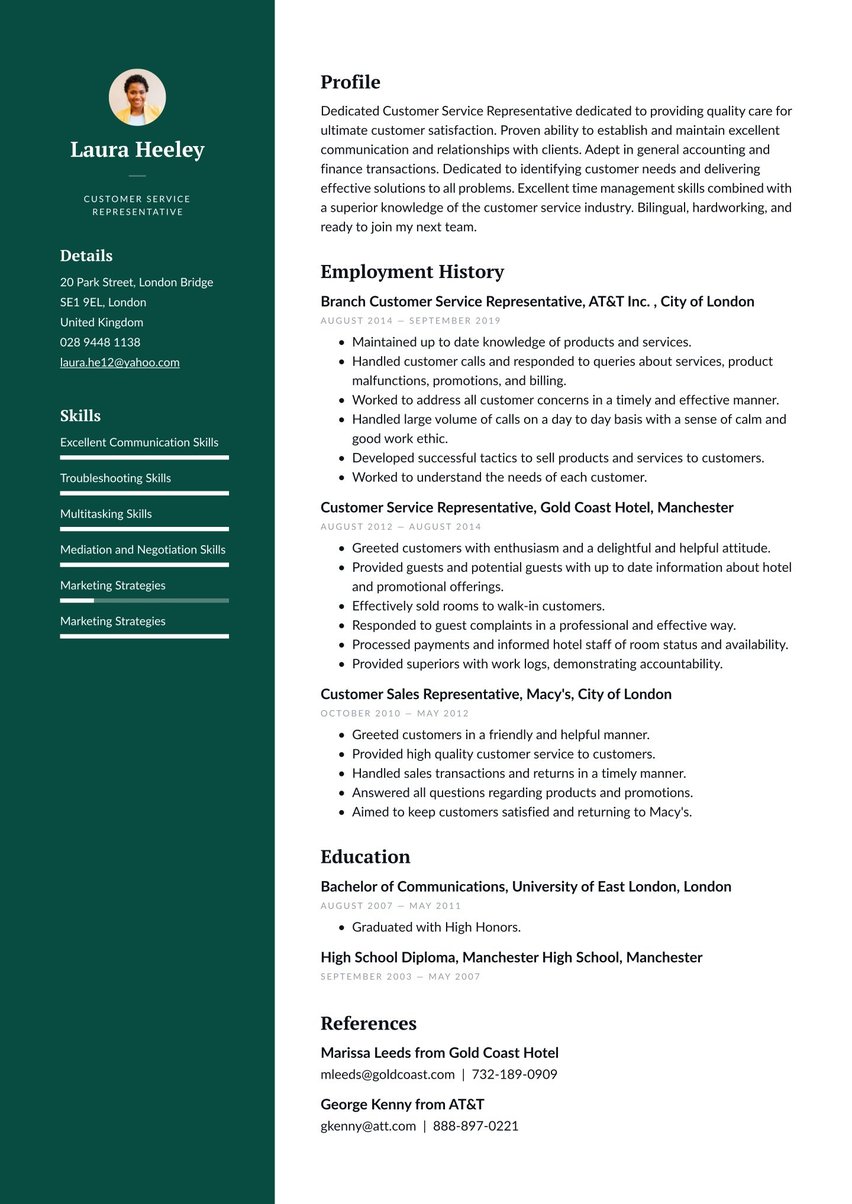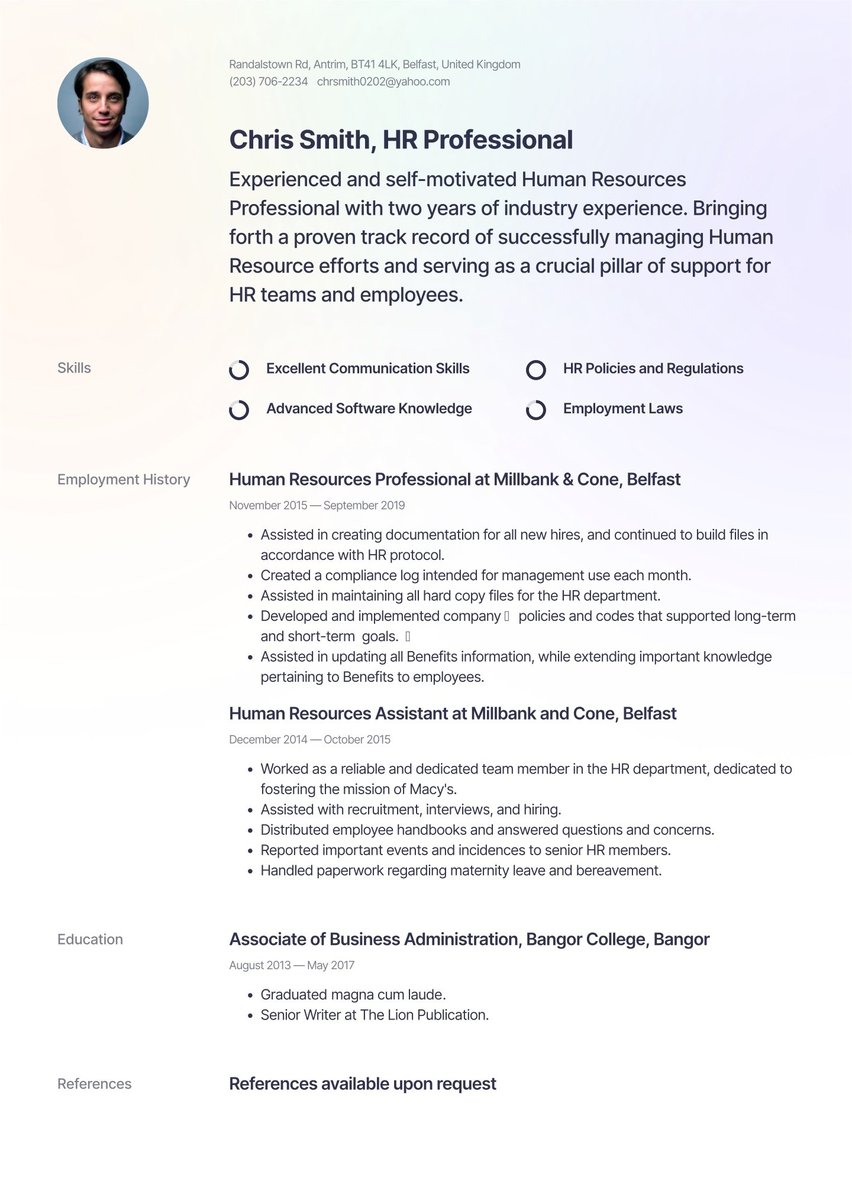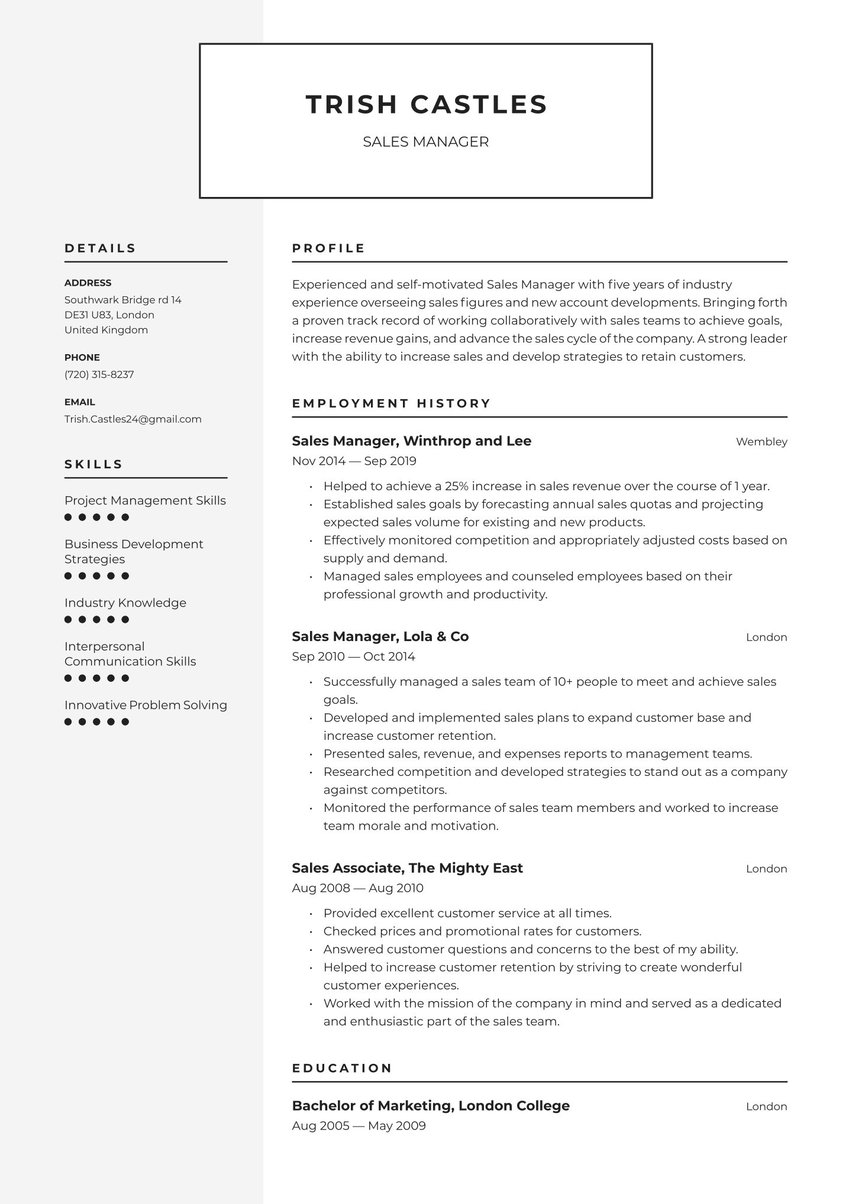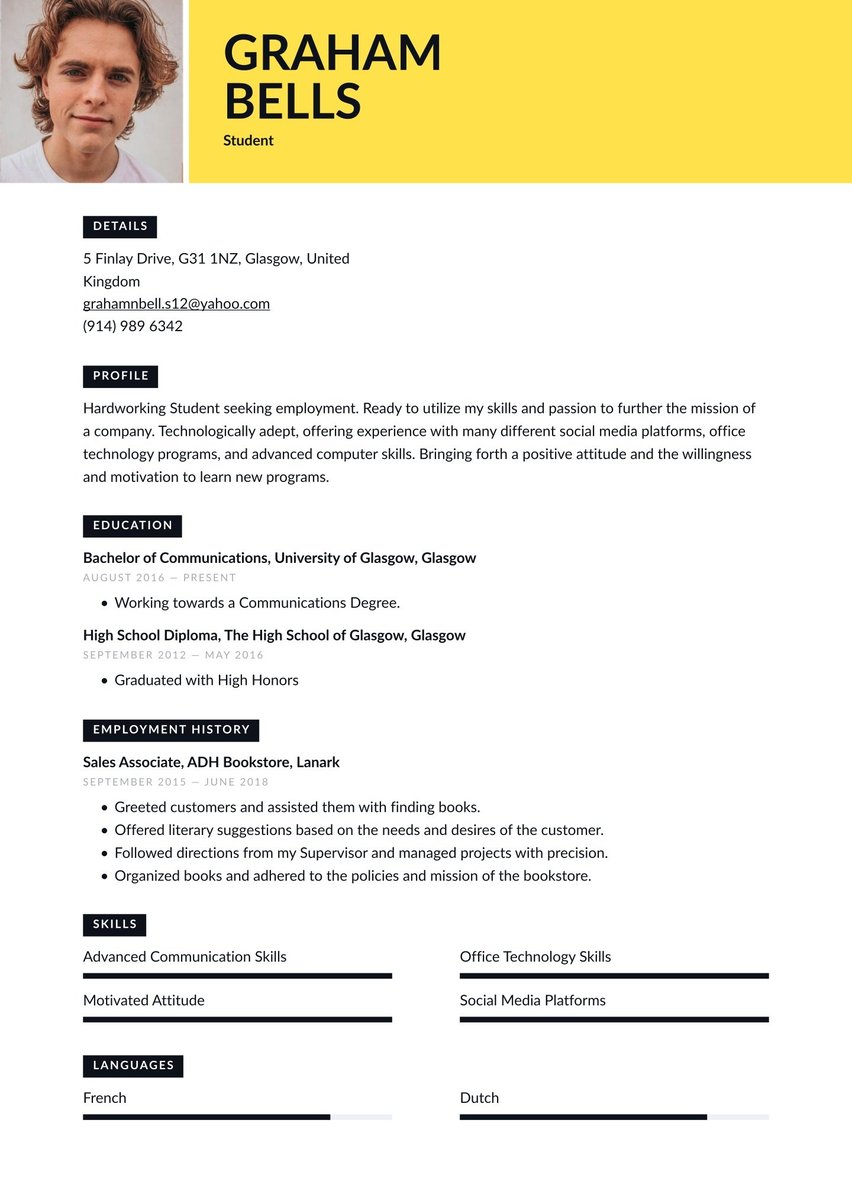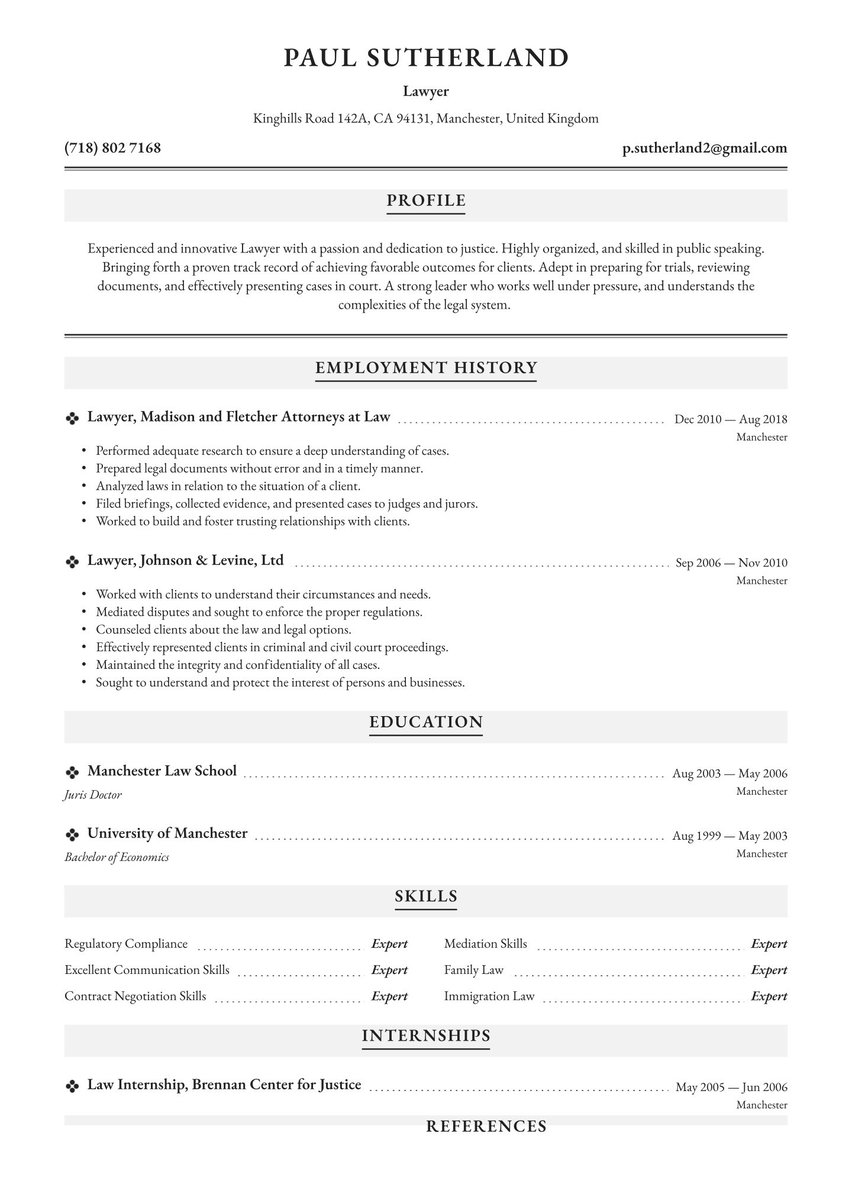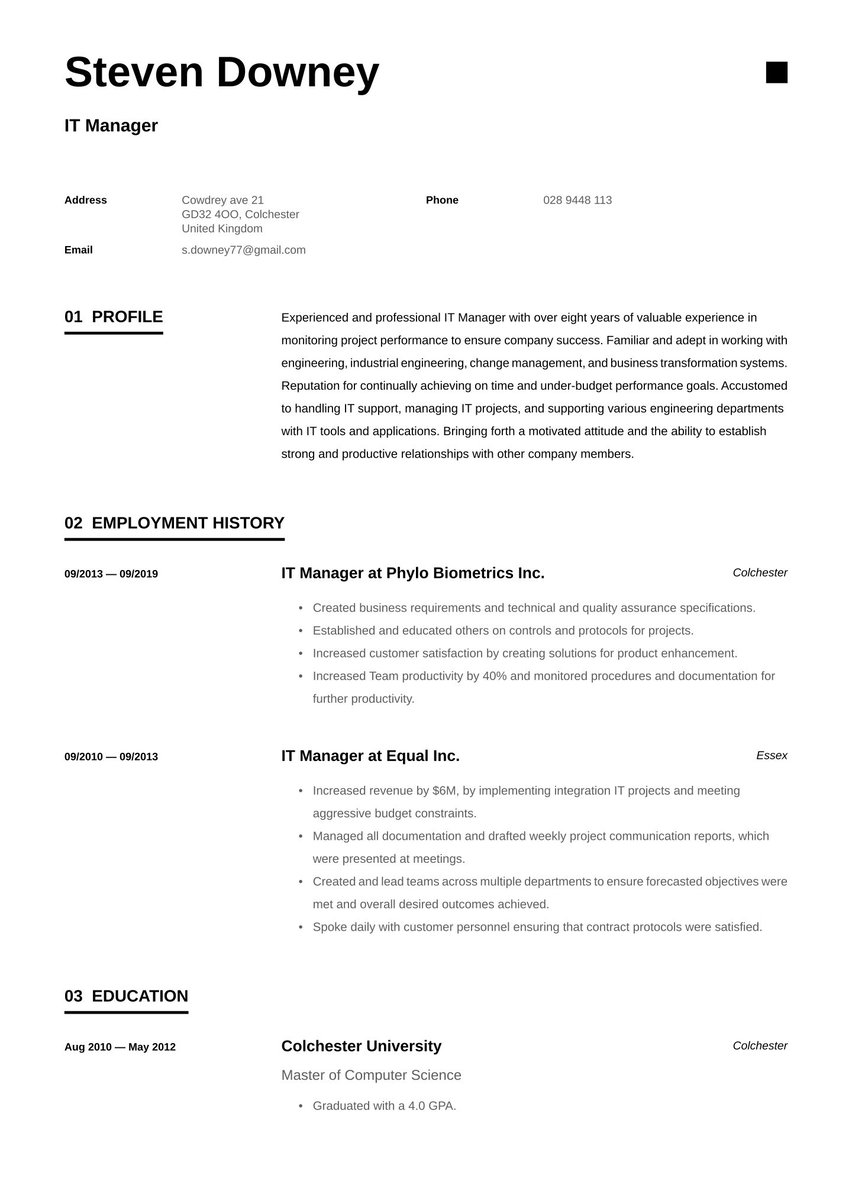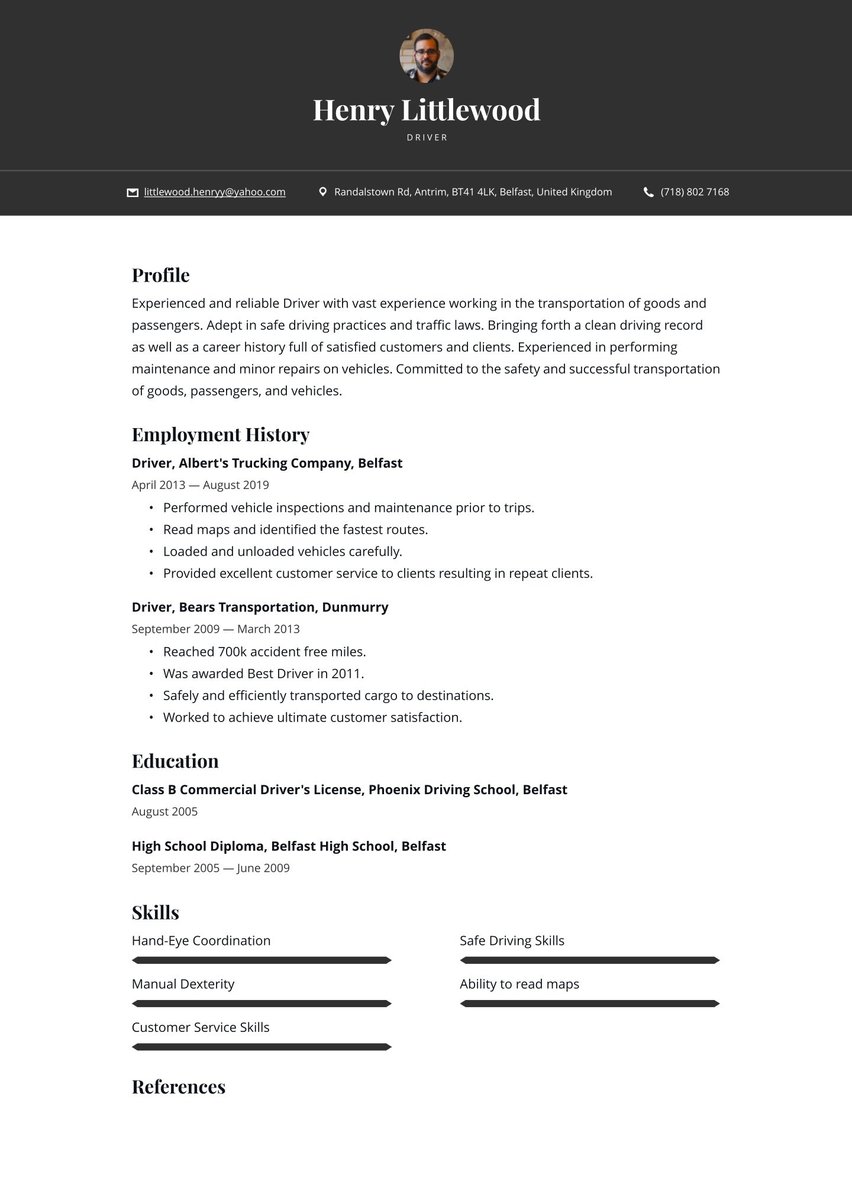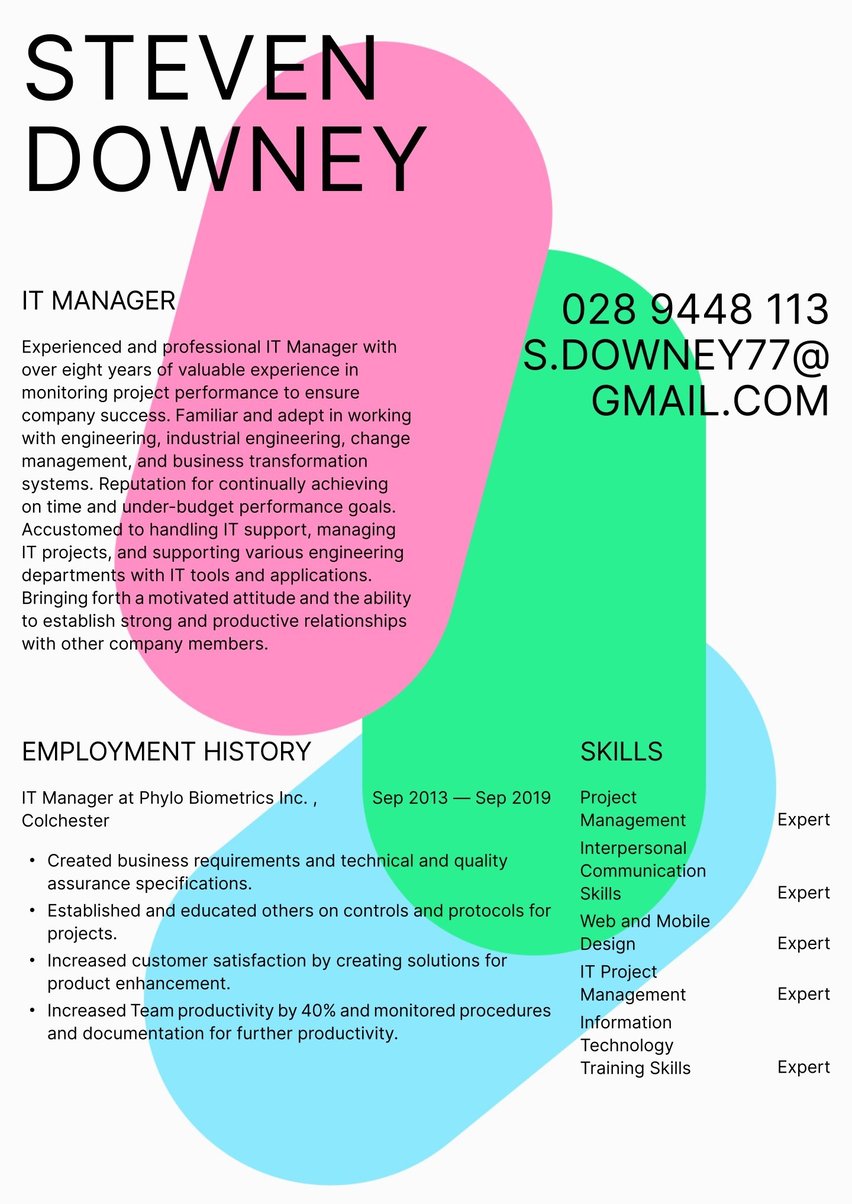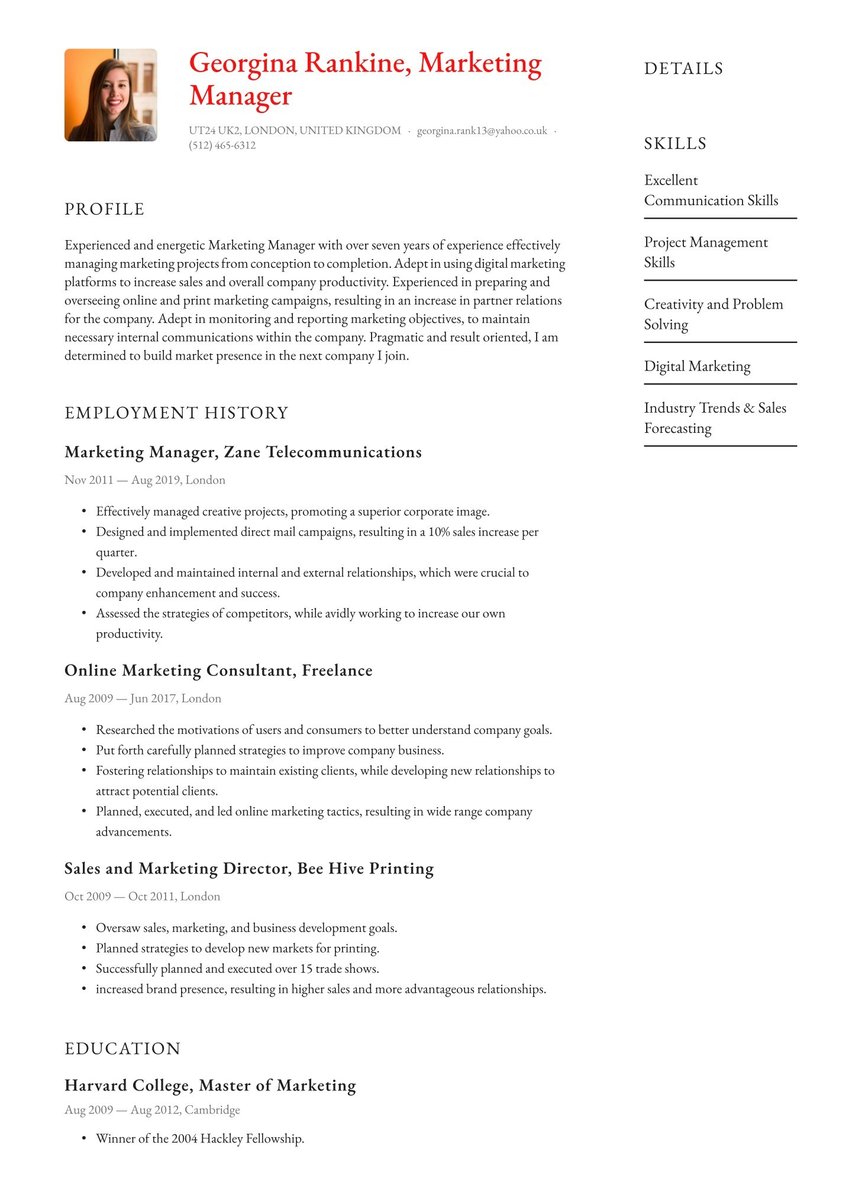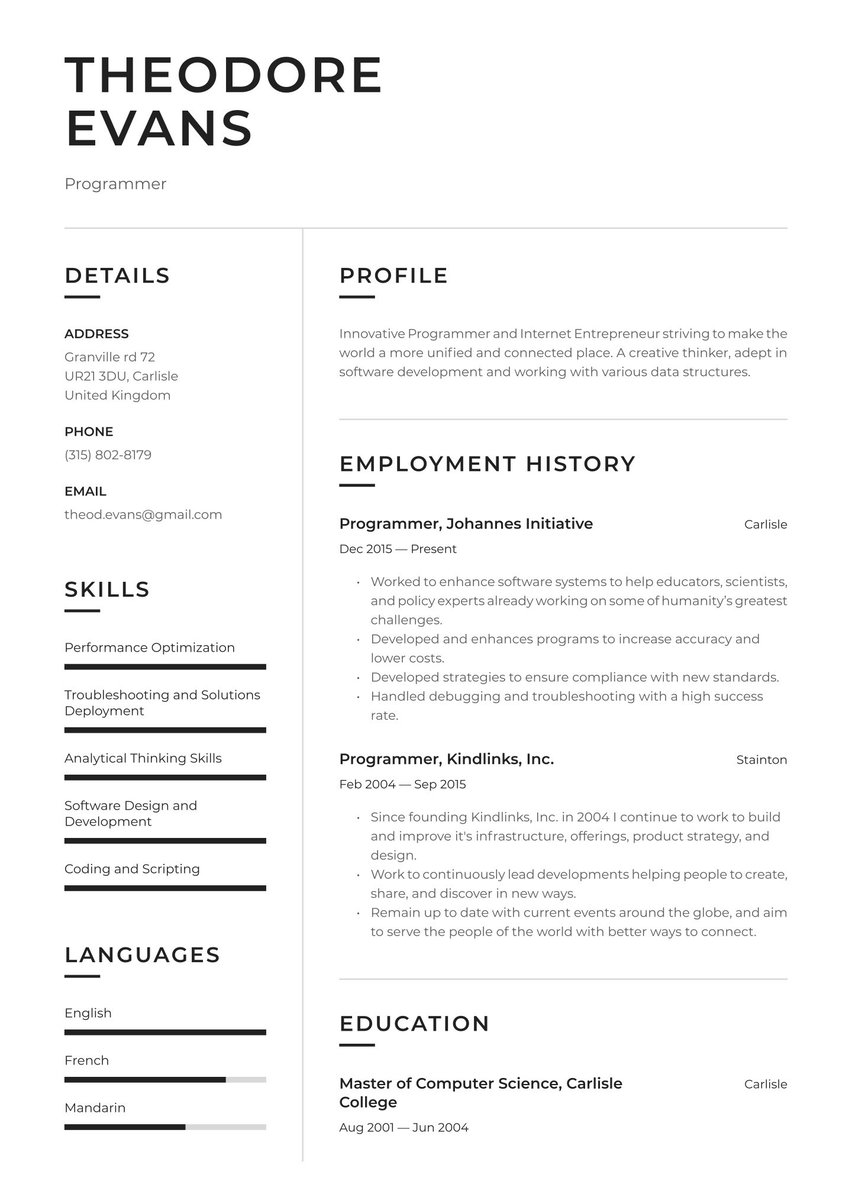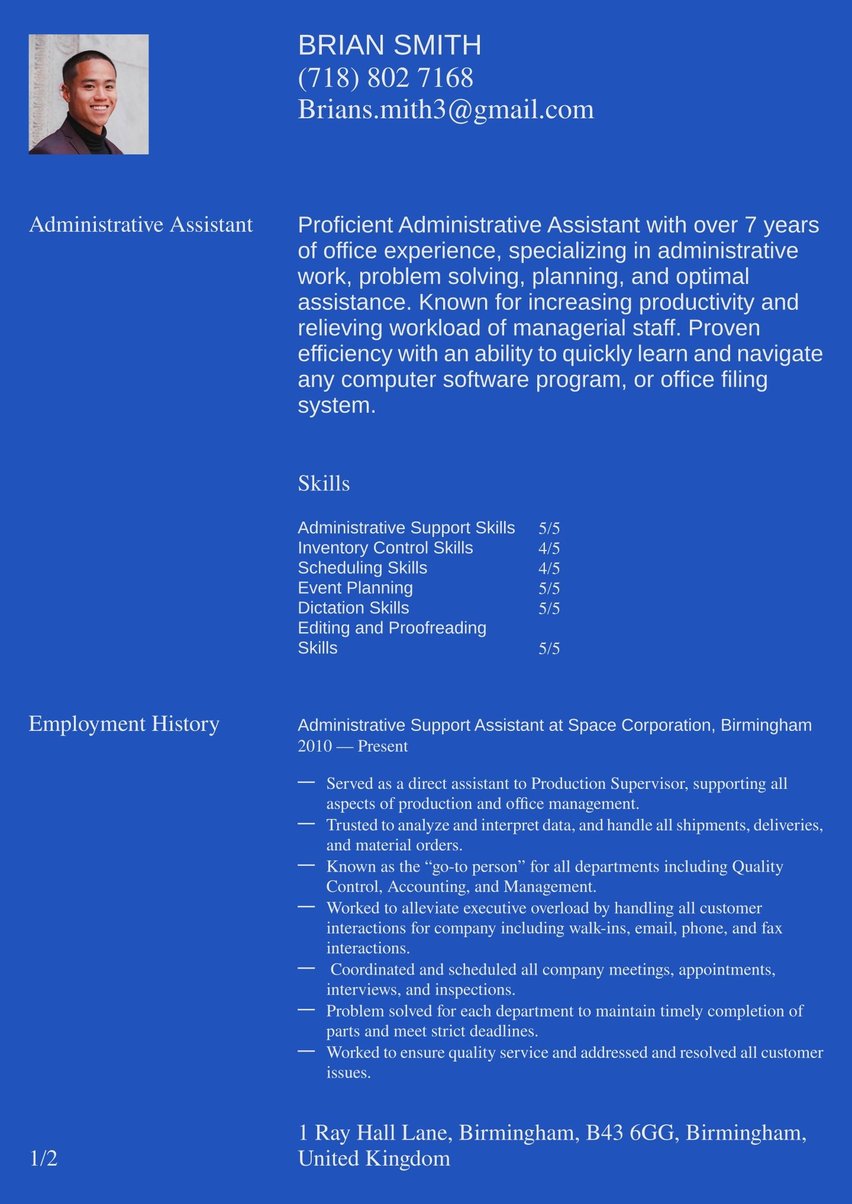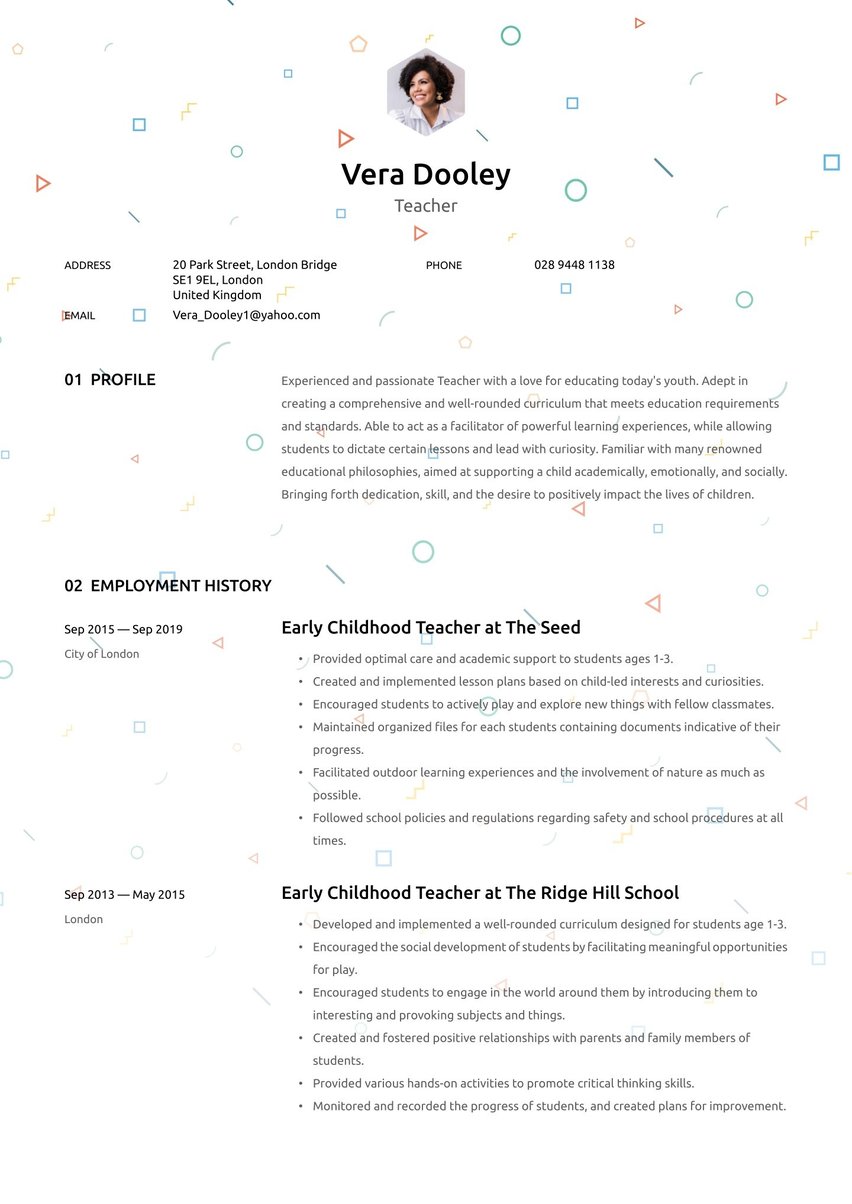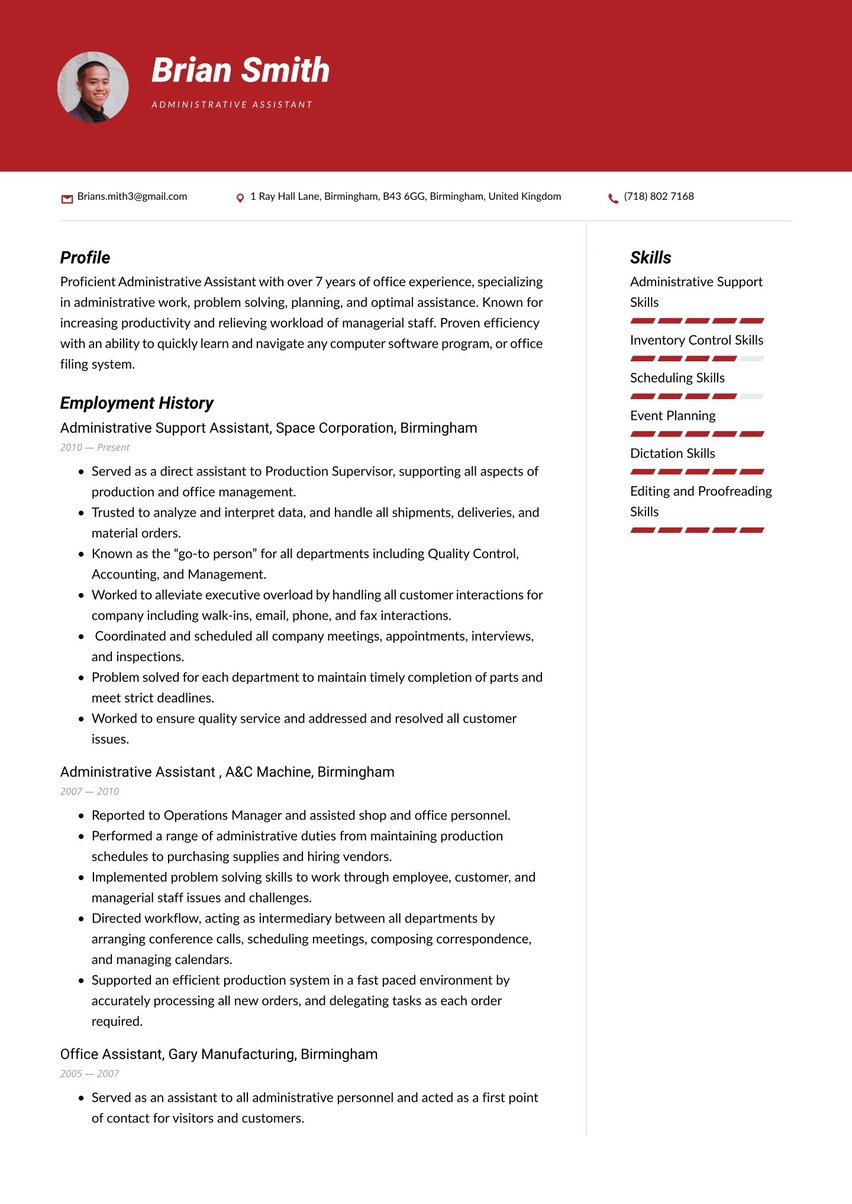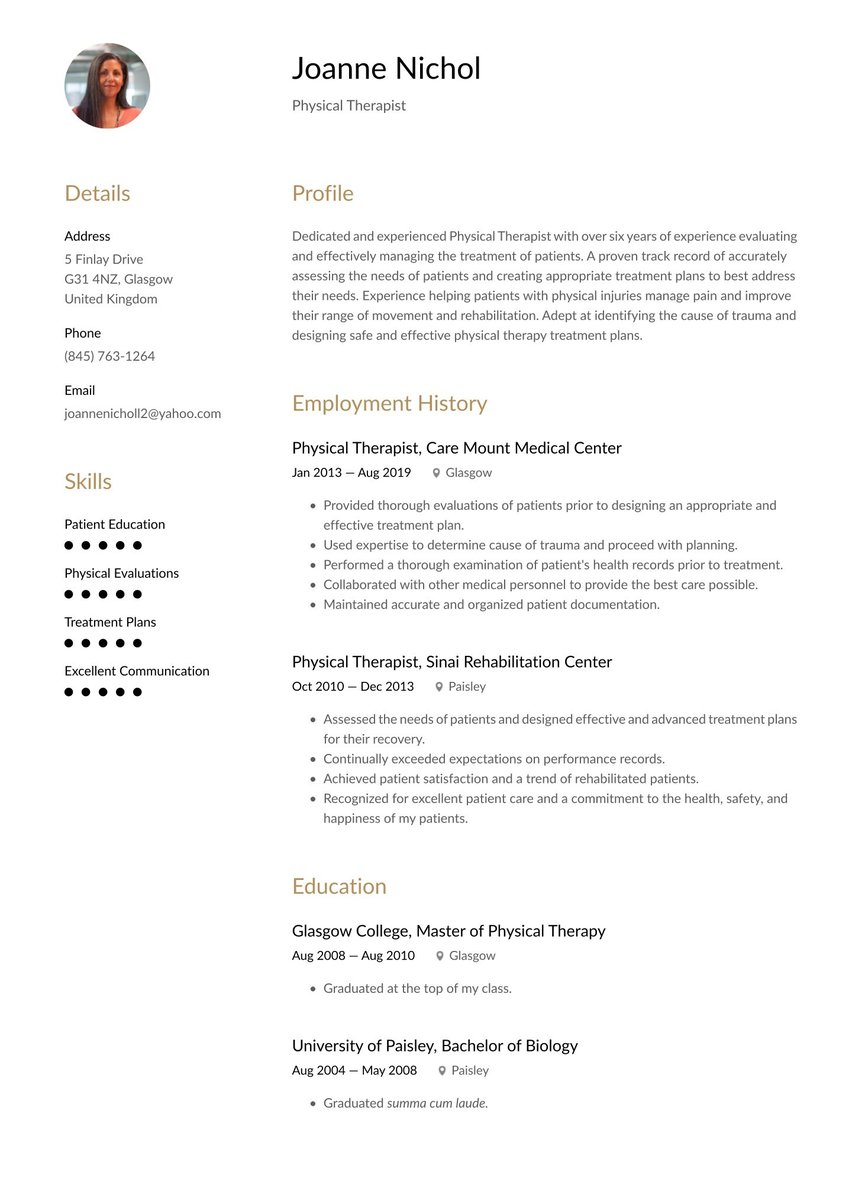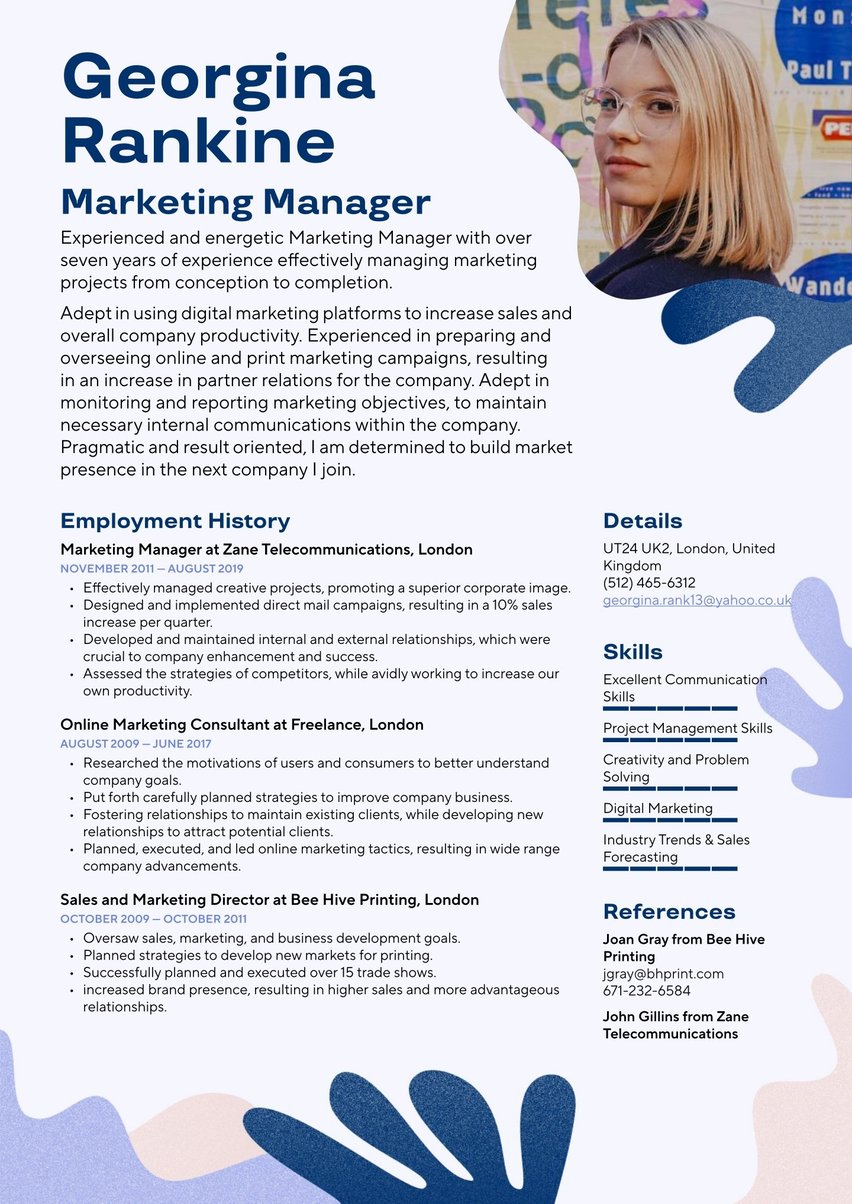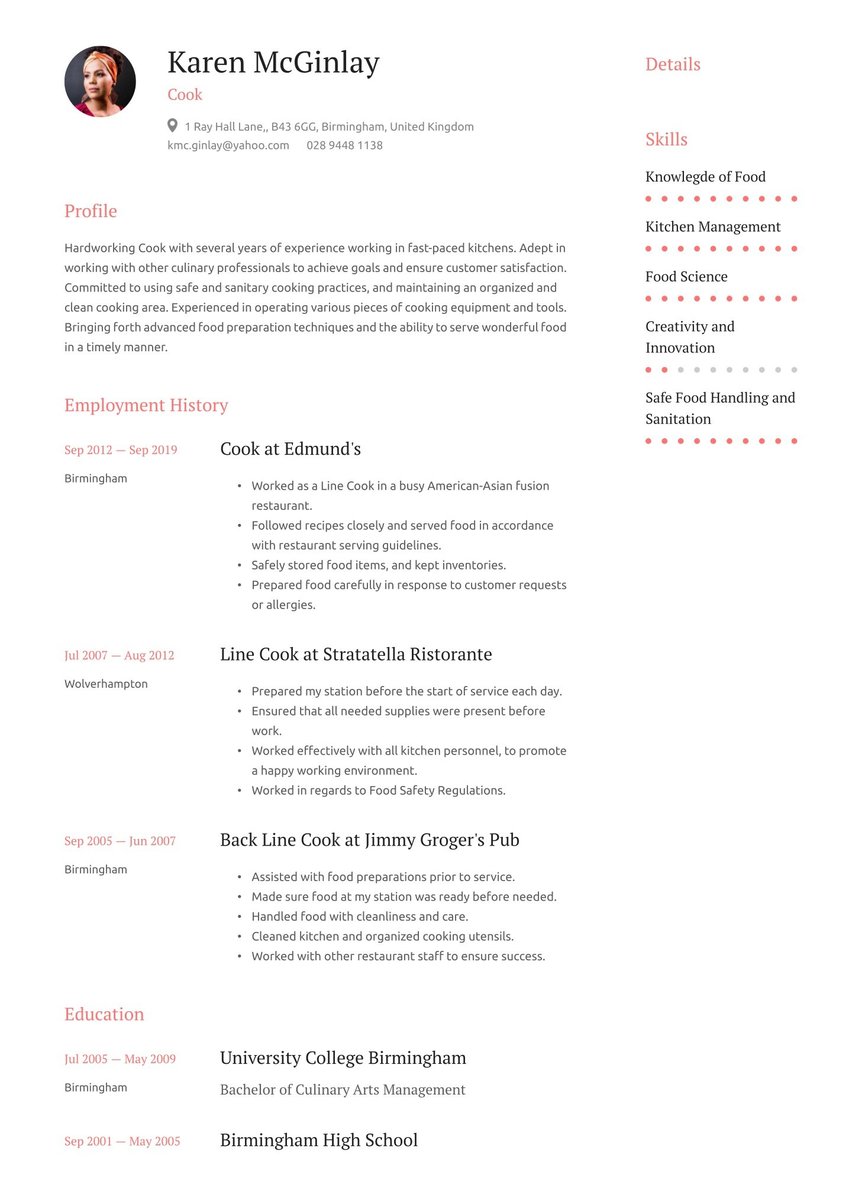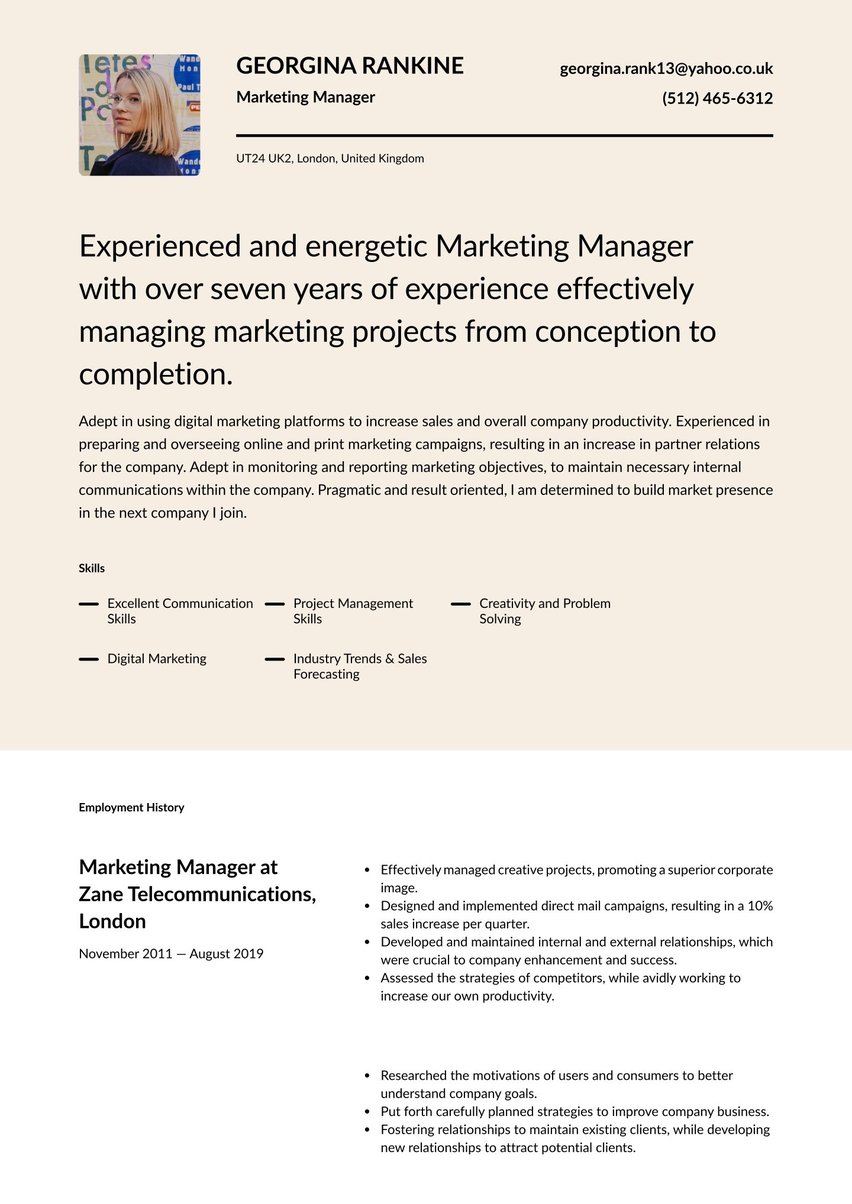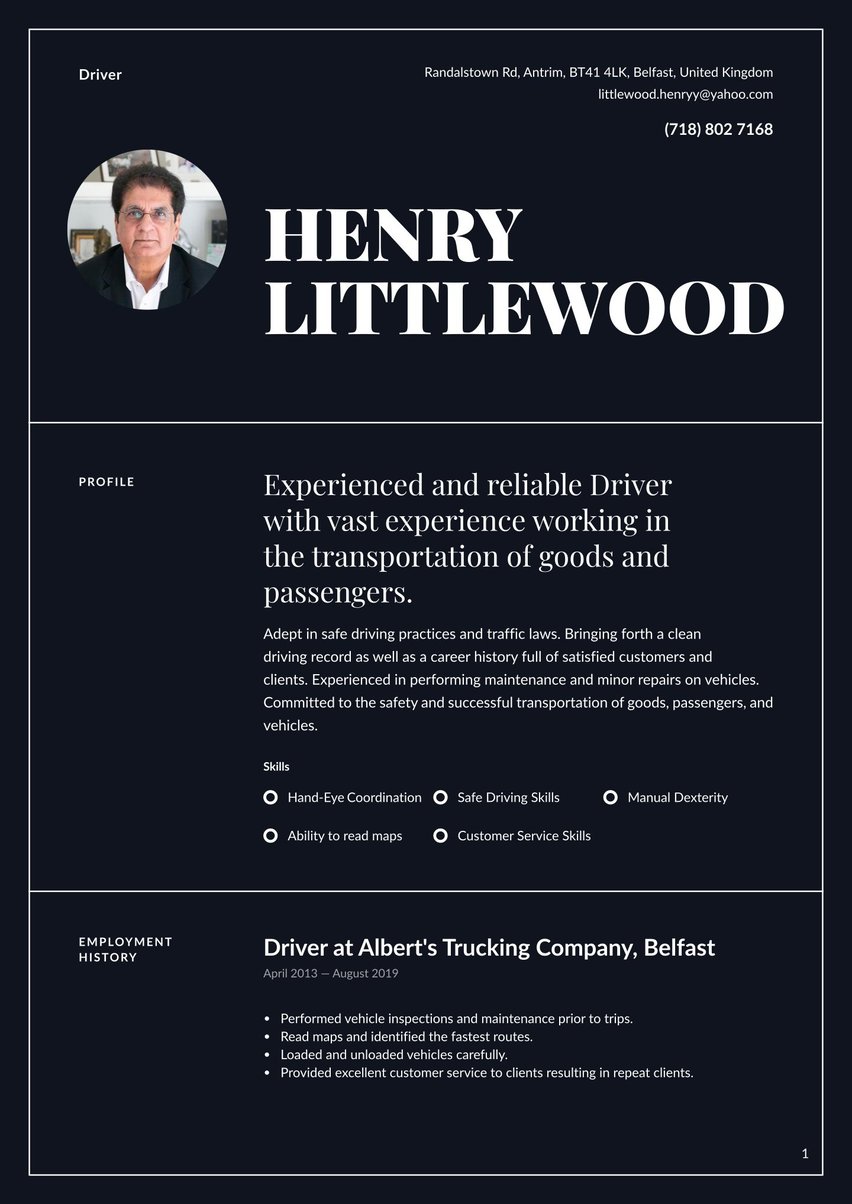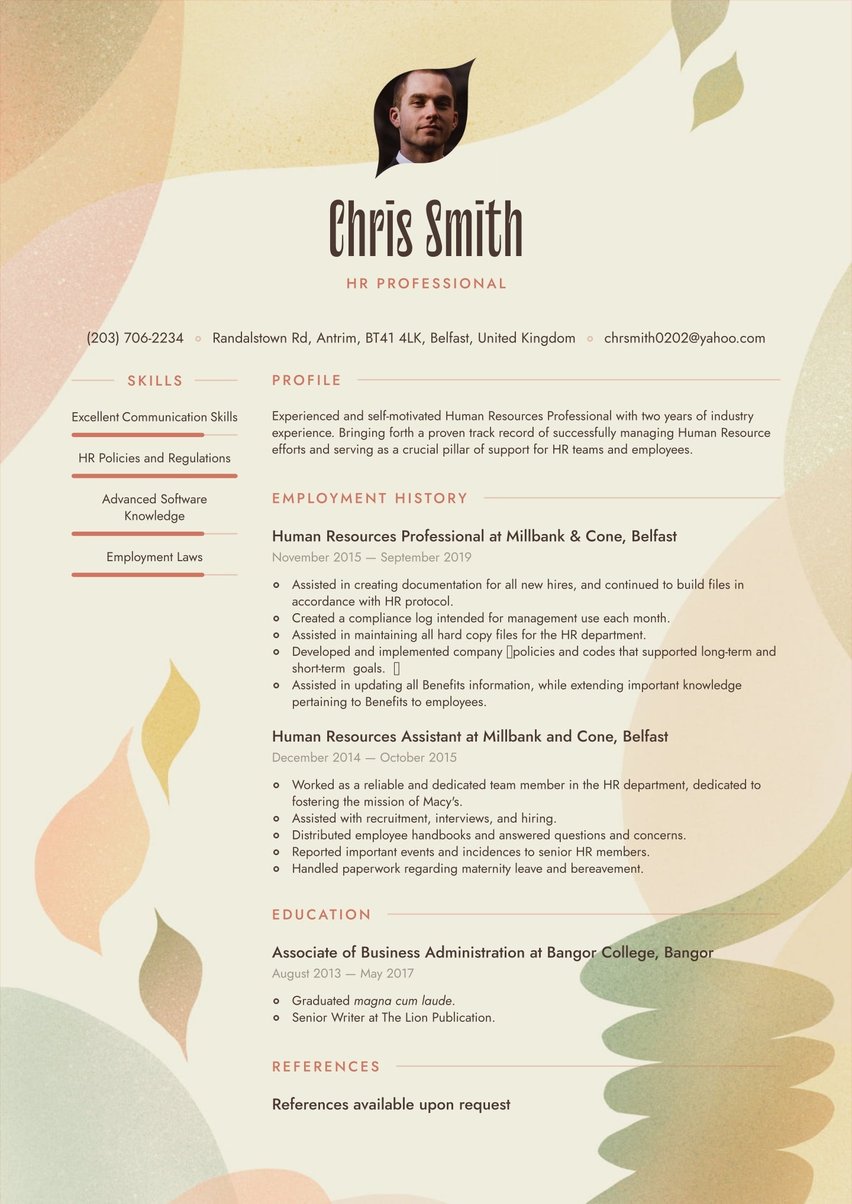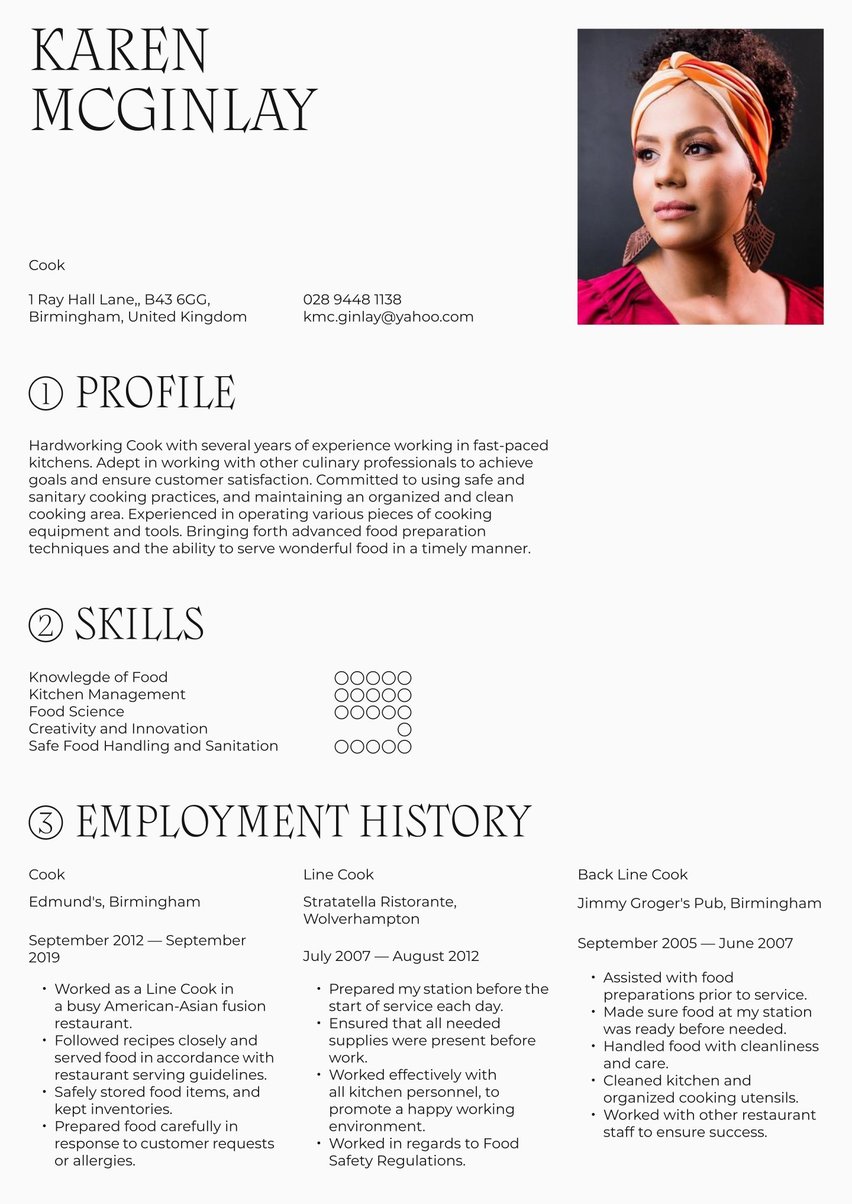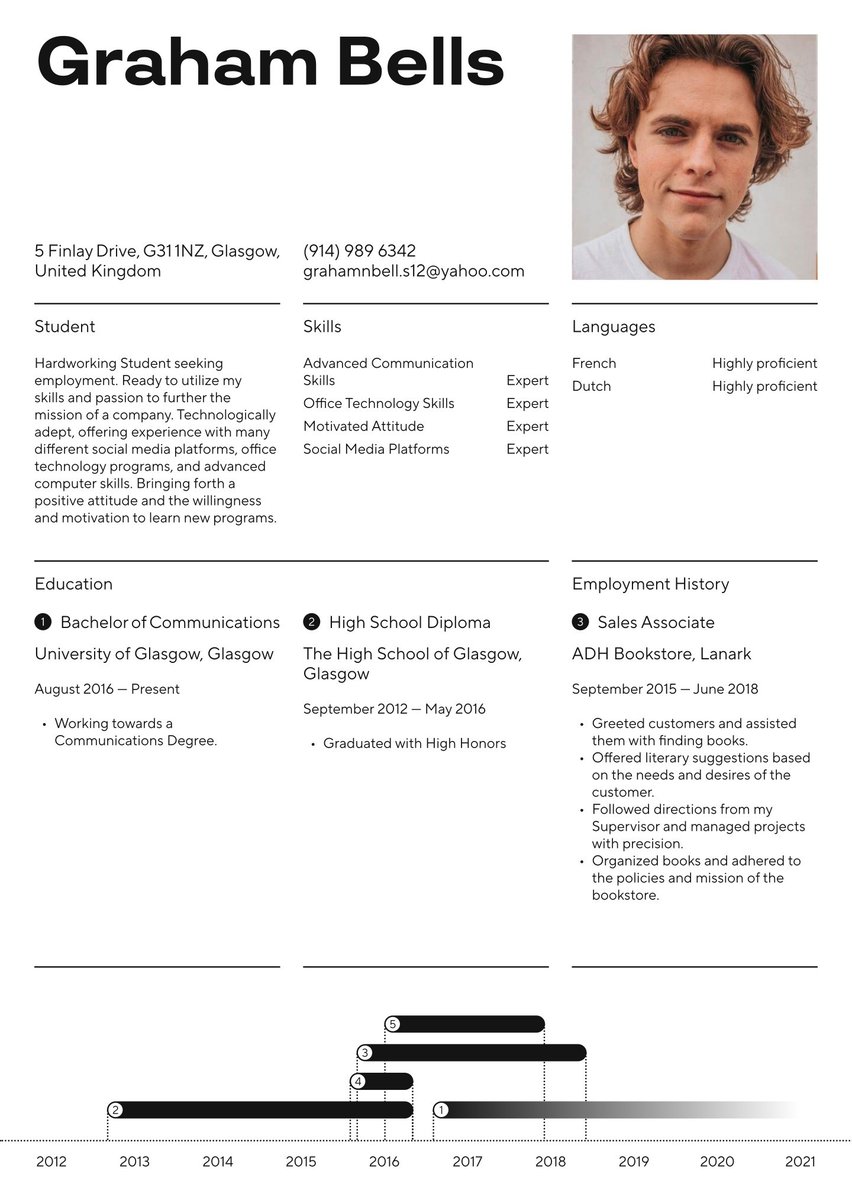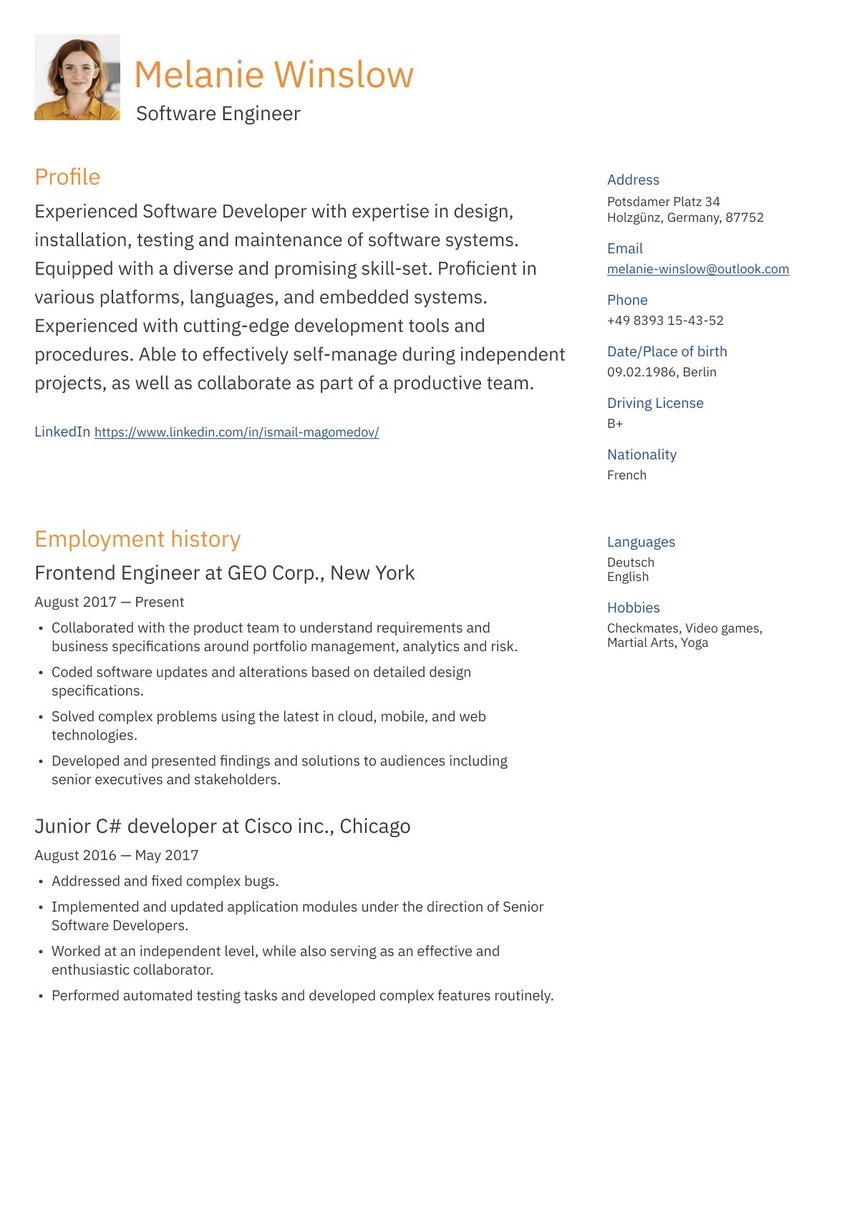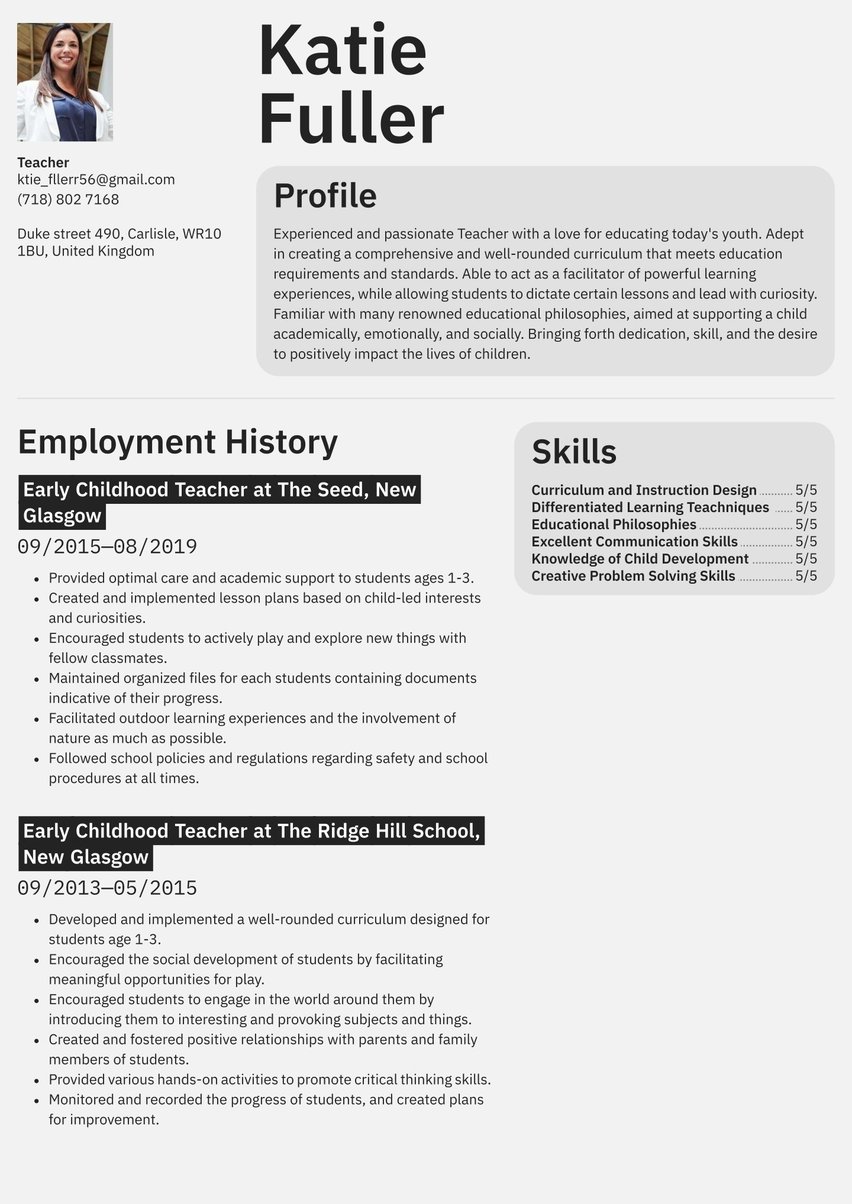Enthusiastic and motivated university student with a strong interest in pursuing a career in customer service. A quick learner with a commitment to meaningful customer interactions. Eager to apply my commitment to customer satisfaction and effective communication in an academic environment.
09/2022 - 06/2018, Sales Associate, Big Apple Bookstore, Oxford
- Greeted customers and assisted them with finding books.
- Offered literary suggestions based on the needs and desires of the customer.
- Followed directions from my supervisor and managed projects with precision.
- Organised books and adhered to the policies and mission of the bookstore.
01/2021 - 12/2021, Editorial Internship , Sky News, West London
- Assisted Senior Editors with a variety of clerical and administrative tasks.
- Utilised my passion for journalism to pitch interesting story ideas.
- Ran spellchecks and edited stories.
09/2020 - 04/2021, Online English Literature Tutor, , London
- Offered online tuition to GCSE students in English Language and English Literature.
- Helped five students to achieve top grades and secure places on AS level course.
10/2021 - 07/2021, Bachelor of Communications, University of Oxford, Oxford
- Working towards a Communications degree.
09/2013 - 07/2021, 3 A level qualifications, Winchester College, Winchester
- A grades in French, Business Studies and English Literature.
- Customer Satisfaction
- Microsoft Office
- Motivated Attitude
- Social Media Management
07/2021 - 08/2021, Certificate in Advanced Communication Practices, University of Oxford
Writing a CV as a student can feel like a daunting challenge. How are you to prove you’re right for the job when you don’t have much (or any!) work experience yet?
The truth is that we all have to start somewhere. Being a student is an exciting time. Perhaps being a student and looking for a job signifies the start of a new career, just a handy way to make some extra money, or you’re a mature student who is gaining a new perspective on life. Whatever your situation, you have more to offer to a prospective employer than you may think.
There is a way to succeed in writing your CV as a student. In fact, there’s a world of possibilities waiting for you. If you can prove that you’re eager and up to the challenge, there are plenty of ways to seize a potential opportunity. It all starts with putting pen to paper and getting your student CV out into the world.
CV guide for a student CV
As a new CV writer, you may want to avail yourself of the helpful resources Resume.io provides for all job seekers, from students to career veterans. Our CV examples for students and many other professions, plus our easy-to-use CV builder are designed to help you write the perfect CV and land your next interview.
This CV guide and corresponding student CV example will cover the following:
- How to write a student CV
- Choosing the right CV format for a student
- How to add your contact information
- Using summaries
- Adding your experience
- Listing education and relevant experience
- Picking the right CV design/layout
- What the student job market looks like and what salary you can expect
How to write a student CV
The very first step in writing your student CV is understanding what sections to include. Your CV should contain the following elements:
- The CV header
- The CV summary (aka profile or personal statement)
- The employment history section
- The CV skills section
- The education section
You may want to add others, such as your interests, but only if it applies to the job or that you think might impress the hiring manager.
With a student CV, you need to know as much as possible about the company, so that you are clear about who your target audience is. It is a good idea to tailor your CV to each job you are applying for; quite often this means only making small tweaks. Consider what the hiring manager will want to know about you and your desire to work for them, especially if you have no prior experience.
Like writing an essay, your CV should be structured and well thought out before you get started. Here are some winning tips to get your CV on the road to success.
- Tailor the CV to both the employer and the job you are applying for. Your tone and delivery may be different if applying for an internship, rather than a part-time job.
- Follow the CV examples we have, and ensure you use a clear design, don’t go over the top with the design.
Use keywords throughout your CV to help you get selected if the company uses an ATS. You can find the most appropriate keywords in the job description.
Optimise for the ATS
Your student CV is an opportunity to share with the hiring manager that while you may still be learning, you’ve learnt a thing or two. That is to say that you have plenty to offer a prospective employer. However, to ensure your painstakingly written CV makes it in front of the hiring manager’s eyes, you’ll have to impress the Applicant Tracking System (ATS).
The ATS is an algorithm that ranks the best CVs of the bunch. It filters the most relevant job applications according to the presence of keywords. Those keywords are usually determined by the language used in the job posting and/or job description.
Want to make sure your CV doesn’t flunk out? Follow some of these tips:
- Easy-to-read formatting. Make sure your CV is presented in a clear format.
- Keep your CV fonts simple. Avoid using difficult-to-read CV fonts.
- Check those keywords. Make sure you match your CV’s language to the language in the job ad.
- Avoid spelling errors. Triple-check your work for typos.
Choosing the right CV format for a student
The reverse chronological is usually the best CV format to use. In most cases, you would start your CV with details of your past employment. With a student CV, you are unlikely to have much experience, so the best approach to your CV is to place your education section first (in reverse chronological order). You may even want to consider using a skills-based CV.
However, if you do have experience, especially if it is relevant, you may want to leave your employment history section above your education. For instance, if you are a student applying for an internship in a bank, and you have worked in the financial sector/worked with money before or completed a previous internship, it would make sense to put this at the top, even if it is only one role, as it’s the most relevant aspect of your application.
It is a judgment call here as to whether your degree is the most important aspect of the job. If so, this is where your focus should be. Regardless of where you put each section, remember to use a simple layout. You can consider making this step a little simpler by using our CV builder.
Include your contact information
You’re fresh-faced and ready to join the workplace, but first impressions are everything. So make sure that the first thing the hiring manager will see on your CV is making the best impression, too. That’s your CV header.
To explain further, your key goal with your CV is to impress. However, functionality is key. As well as making sure your name is legible at the top of your student CV, you want to make sure that it’s easy to contact you. The best way to do that? Add your contact details in a way that’s clear in your CV header. Here’s how it’s done:
- Full name & title. List your first and last name. You can list your title as the name of the job role you’re after if you have some experience already in the field.
- Professional email address. You may still be a student, but make sure you have an email that follows a format such as firstname.lastname@email.com.
- Phone number. List a number where you can be readily contacted. Don’t forget to make sure your voicemail greeting is appropriate, too.
- Location. Listing just your city is enough detail for this stage of your job hunt.
- LinkedIn. It might be time to think about starting a LinkedIn page. While it’s less likely that the hiring manager at a retail job will check this, it will certainly come in handy if you’re applying for an office job or internship.
Don’t include:
- Date of birth. Your CV may be a giveaway that you’re a student, but adding your date of birth can make age discrimination easier. This could put you at a disadvantage when negotiating pay.
- Personal details. Marital status, national insurance number, and passport number are all things that can be kept private for the time being.
Amanda Baker
Social Media Manager
07593011
mandy.baker@email.com
Amanda Baker
TikTok Rock Star
07593209235
blondymandy@email.com
Make use of a summary
The first section of your student CV is the summary – or profile. This is situated below the header, and it gives the hiring manager an introduction to you. Just like an essay, you lead the reader into the rest of the content with your introduction.
The summary is a short but sweet insight into your expertise and why you are a good candidate for the role.
Space is always the issue with CV samples. You want to keep it as concise as possible while ensuring you cover the key points. Just as you would make it clear to the reader what you are planning to cover in an essay or assessment before you plunge into it, you should lead the reader nicely into your story.
It can be challenging to know where to get started with writing your summary, so we would suggest looking at our education CV examples for some inspiration. You may want to look at the student CV examples or more specifically, the school leaver CV example or the graduate CV example. We also offer a part-time job CV sample, a retail CV sample, and a barista CV sample.
Confidence is key with your summary: get to the heart of what makes you great at what you do, and why you should be selected for an interview. Student CVs are different from professional CVs, as you may not have any relevant experience, especially if you are in high school, so depending on the job, you want to focus on the key elements that are important to them.
Don’t be tempted to state that you have the experience you don’t have in your student CV, just to try and get a foot in the door. Most employers are not expecting you to have experience anyway.
You can find adaptable student CV example summaries below:
Enthusiastic and motivated university student with a strong interest in pursuing a career in customer service. A quick learner with a commitment to meaningful customer interactions. Eager to apply my commitment to customer satisfaction and effective communication in an academic environment.
Highly driven Business Administration student with previous experience in customer service. Proven record in exceeding sales targets and ensuring customer satisfaction. Skilled in negotiation, customer engagement, and organisation. Proficient in several POS systems and committed to offering exceptional customer experiences.
Post-graduate student with two years’ experience in executing telemarketing services. Experienced in quickly building relationships, negotiating, and exceeding sales targets. A fast learner, skilled in building superior product knowledge in a short time span. Ready to bring my skills to a team operating in the wellness sector.
Outline your work experience: a blank canvas
If you have some experience, great, if not then don’t worry, our student CV example will help. Let’s consider that you do have some work experience. No matter how little, you should put the most recent first in the employment history section and then work your way back.
Start with a simple subheading for each of your previous positions. Each subheading should include the following information:
- Your job role
- The name of the organisation you worked for
- Your dates of employment. If you are still employed there, you can list the second date as “present”.
- The location of the role
If you have work experience, you should use bullet points to describe the relevant responsibilities of the role. It can be short and snappy, with keywords where appropriate. You should never write your CV in the first tense i.e., using ‘I’ or writing using your name, for instance, ‘John was responsible for answering customer queries and complaints.’ It is more appropriate to write ‘responsible for answering customer queries and complaints' as a sentence or ‘negotiated contracts with suppliers.’
It is better if you can substantiate any of your responsibilities with quantifiable outcomes. For instance, ‘responsible for handling 200+ customer calls per day’, is better than just ‘responsible for handling calls.’ CVs are always more attractive with quantifiable data, and you should use this wherever relevant.
There’s no need to exaggerate or lie on your CV. Remember that as a student your “previous employment” can be easily transformed into “previous experience”, so you can include mention of any relevant extracurricular activities, volunteer work, or internships These experiences can be valuable ways to illustrate desirable skills like teamwork, leadership, and time management. Even if at a glance some of these experiences seem unrelated to the job you're applying for, they can still showcase your versatility and initiative.
Additionally, consider including any relevant projects linked to your studies that demonstrate your expertise in specific areas. Overall, presenting a well-rounded picture of your experiences can make your CV more compelling to potential employers.
Sales Associate at Big Apple Bookstore, Oxford
September 2022 - Present
- Greeted customers and assisted them with finding books.
- Offered literary suggestions based on the needs and desires of the customer.
- Followed directions from my supervisor and managed projects with precision.
- Organised books and adhered to the policies and mission of the bookstore.
Editorial Internship at Sky News, West London
January 2021 - December 2021
- Assisted Senior Editors with a variety of clerical and administrative tasks.
- Utilised my passion for journalism to pitch interesting story ideas.
- Ran spellchecks and edited stories.
Online English Literature Tutor, London
September 2020 - April 2021
- Offered online tuition to GCSE students in English Language and English Literature.
- Helped five students to achieve top grades and secure places on AS level course.
How to write a student CV with no experience
Everyone has to start somewhere. Most people get their first job when they are a student or carrying out studies of some kind. That means that you’re in good company.
Here are some tactics you can use to write an excellent CV with no experience and get your foot in the door:
- Unpaid experience. Instead of work experience, reference activities such as volunteering, tutoring, extracurriculars, or babysitting. You’ve probably picked up many skills that you’re not giving yourself credit for.
- Lean into transferable skills. Similar to the above point, think of transferable skills from other activities and your studies that are relevant to the job you’re applying to.
- Borrow inspiration from your studies. If you’re not sure where to start in finding a job, just remember that you’re learning plenty of things in your studies that could be of value to a workplace. Even if you’re looking for a simple part-time job, targeting companies whose brand values overlap with your area of study could give you a competitive leg up.
Include the relevant key skills that make you a great student
The skills section will usually be the main section on a student CV, as you will either not have any experience or little. This is a good opportunity to inform the hiring manager about the key skills you have that are relevant to the role.
You should always have a look at the skills listed in the job specification. If you are applying for a customer service role, for instance, you will need to have strong communication skills, work well with others, and be a quick learner. Customer service skills are great since they’re so easy to transfer between jobs and sectors.
Research the company
Find out as much as you can about the company before you start writing your CV. If you can find any contacts that work for the company, speak to them, and look on websites such as Glassdoor for reviews. This will give you a good insight into exactly what the company looks for in terms of skills, and you can use this information on your CV to try and increase your chances of being invited for an interview.
Depending on the role of the workplace, you might find that the company culture prioritises different skill sets. It’s important to look at the language used in the job description as well as reading between the lines.
The tone of voice of the company can help you to decipher whether they are a conservative workplace that might be looking for someone serious and trustworthy. Or perhaps the focus is on something else, such as innovation or compassion. These traits will all correspond to skill sets that you can shine a light on in your CV.
- Customer Satisfaction
- Microsoft Office
- Motivated Attitude
- Social Media Management
Student jobs often involve dealing with the public and you need to be able to ensure the hiring manager knows that you will be confident when dealing with customers and will deliver an exceptional service. Don’t forget to reserve some space on your CV to highlight those examples of soft skills that show you’re the perfect candidate to do just that.
Soft skills vs hard skills
If you’re new to the workforce, there’s no shame in leaning into your soft skills. Those refer to the way you carry out tasks. For instance, your excellent attention to detail or personable and bubbly nature.
As a student, you’re probably learning lots of hard skills. Those are technical skills that can be taught. Try to include some relevant hard skills in your skills section, too. The best candidates need a mix of both.
Detail your education & relevant student certifications
In most jobs, the hiring manager’s interest in your previous experience trumps your education. Student CVs are different. Your education is your main life experience. As mentioned earlier, it is usually more relevant to put your education history at the top, under your summary.
However, if you are applying for a part-time customer service role in retail, for instance, your education is probably irrelevant. On the other hand, if you are trying to get an internship or similar, or you are applying to work in a professional setting such as a bank, it will be significant.
You should list your most recent education, such as your degree, and include any other professional development, such as other internships, training courses, etc. If you have any professional membership, this should also be included. It is always attractive for an employer to look at CVs that show candidates are focused on continuous professional development.
How much education is too much?
While we would never encourage you to stop learning, think carefully about just how many qualifications you list on your CV. Even though you are a student, the space for your CV’s education section is limited.
Reserve your education section for only the qualifications that are particularly relevant to the job you are applying to. Here are some tips to keep in mind:
- If you have a postgraduate degree, you don’t need to include details of your secondary school or college examinations.
- If your highest level of education is an undergraduate degree but you didn’t get a great mark, you can choose to keep your exam grades from college or sixth form in your education section.
- You can include work experience carried out during your education – including apprenticeships – in your student CV’s previous experience section, too.
If you haven't been to university, then you can include qualifications in your CV's education section, such as GCSEs, BTECs, or A levels. But don’t forget that many other trainings and certifications that are worth mentioning. These could include, but aren’t limited to:
- Foundation Degrees
- HND (Higher National Diploma)
- HNC (Higher National Certificate)
- Apprenticeships
- Access to Higher Education Diplomas
- T-Levels
Simply create a subheading with the name of the qualification you have earned or are working towards. Include details of the educational institution, its location, and the dates attended. If you are still studying, you can say so by listing your anticipated graduation date or a simple “present” to emphasise that you are still studying there.
Below you will find an education section from a student CV example.
Bachelor of Communications, University of Oxford, Oxford
October 2021 - Present
- Working towards a Communications degree.
3 A level qualifications, Winchester College, Winchester
September 2013 - July 2021
- A grades in French, Business Studies and English Literature.
Pick the right CV layout and design for a student CV
The purpose of our student CV sample is to help increase your opportunities to gain employment. The content is the crux of the CV, but the design is also an important consideration. The CV layout should be clean and clear so that it is as easy to read as possible.
There is no need to go over the top with the design of a CV as that is not the hiring manager’s main consideration. Some candidates, particularly if they are applying for a job involving design, think that they need to create something visually unique.
Of course, there are occasions when an amazing design will blow the hiring manager away, but this is so subjective that it’s not worth the effort. Some will like it, others won’t. All hiring managers will be impressed by the great content. Focus on that, rather than the design, and you’ll be more likely to get ahead.
Keep your CV tidy!
Housekeeping is not just for your home or student accommodation; it also applies to your CV. Carry out some general housekeeping to ensure it is neat. For instance, ensure you have clear headings, bullet points, and that the font is the same throughout. There is nothing worse than reading a CV that is full of different fonts. It is so frustrating that readers may just give up.
You can’t rush your CV; you need to plan it carefully, just like you would with your essays or assignments. Designing a CV is not for everyone and if you need some help, feel free to use our tried and tested CV templates. We make it easy to design a beautiful CV that readers can’t fail to be impressed by.
Student job market and outlook
Let’s not sugar coat it – it can sometimes be more difficult for students to obtain employment than it is for professionals with experience. It doesn’t mean that there are no opportunities though.
Many companies require students to work shifts that they find difficult to fill (such as evenings and weekends), and there are also the option of internships. Internships are generally available to students over the summer months, and they give students a chance to gain some experience, while the employer can assess the student’s ability for future employment.
Internships aside, there are still plenty of possible jobs for teens and students young and old.
In 2023 Indeed listed some of the most popular online jobs for students. For the roles included in the article, earning opportunities can exceed £20,000 if you have the right skills.
What type of salary you can expect as a student
While some in-demand skills and putting the hours in could have you earning a decent wage even as a student, that’s not the reality for most. Many students work flexible jobs and are paid according to the number of hours they are contracted a month.
That means that many students are earning close to minimum wage. However, of course, it depends entirely on where you are based and the type of skills your job requires.
If you are under 23 in the UK, the minimum wage depends on your age. Luckily, the national minimum wage rates are listed and updated by the government each year, so it will be easy for you to check that you are not being underpaid.
Key takeaways for building a student CV
- Student CVs usually don’t have much or any experience, so your focus is on the summary, your skills, and your education (if relevant). It is usually more appropriate to put your education at the top before employment.
- Do your research on the company you are applying for, so you have a clear vision of the direction of the CV. With a student CV, you need to be able to convince the hiring manager that you are the right person to take forward to the interview. Without any or much experience, you must be clear about why you are applying for the role and what attracts you to the company.
- Ensure you have relevant keywords used throughout your CV; you can find the most appropriate keywords to use on the job spec.
- Tailor your CV to suit the job you are applying for. It may only be small tweaks, but it is important to do this. Otherwise, you could be talking about your love of providing customer service while applying for an engineering internship.

